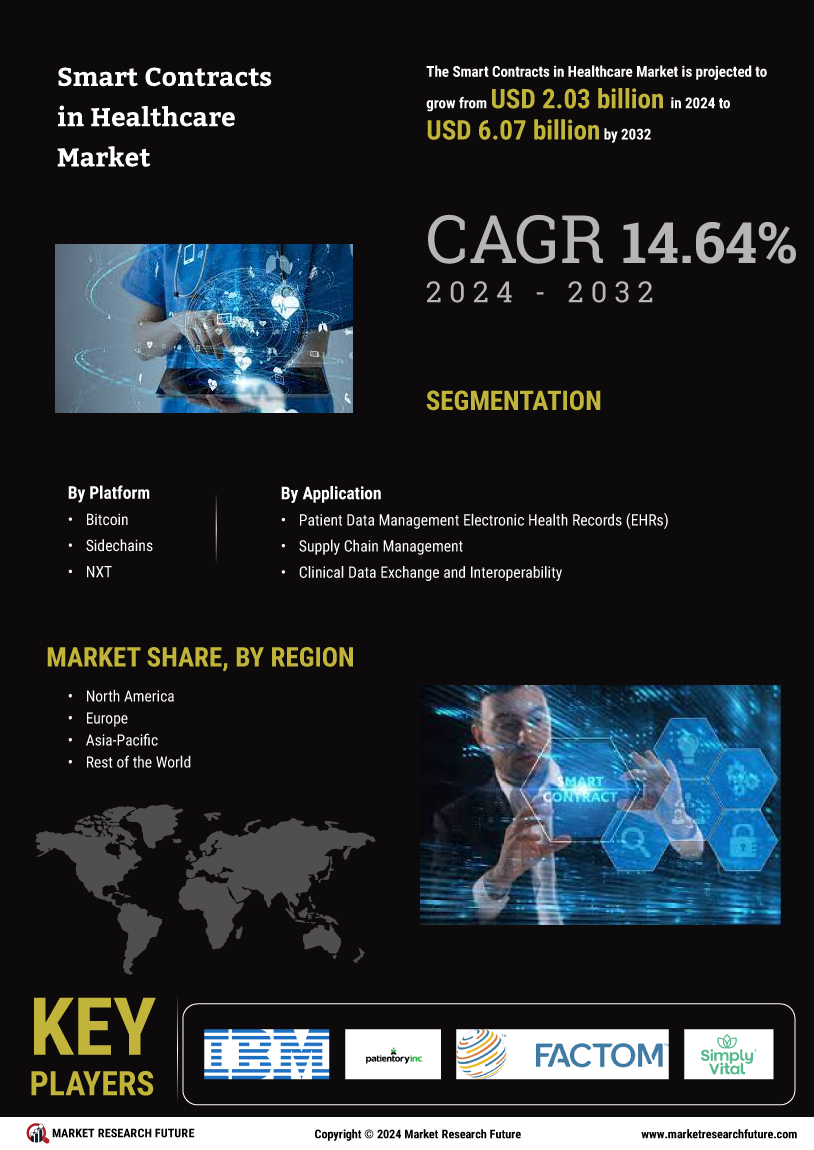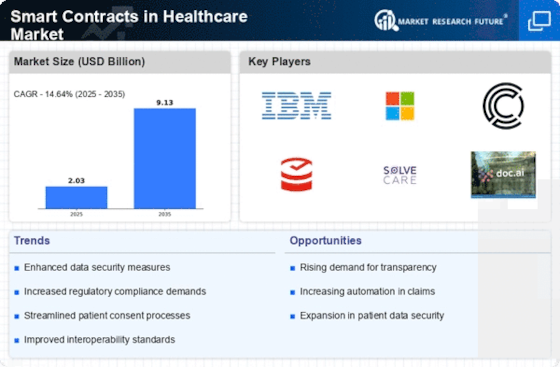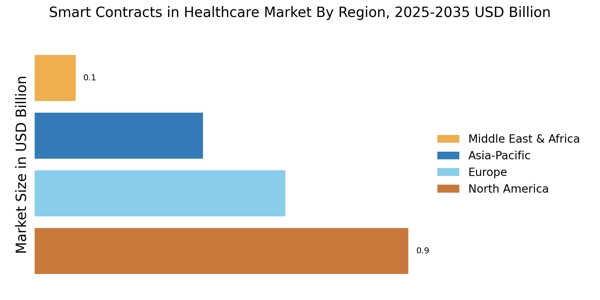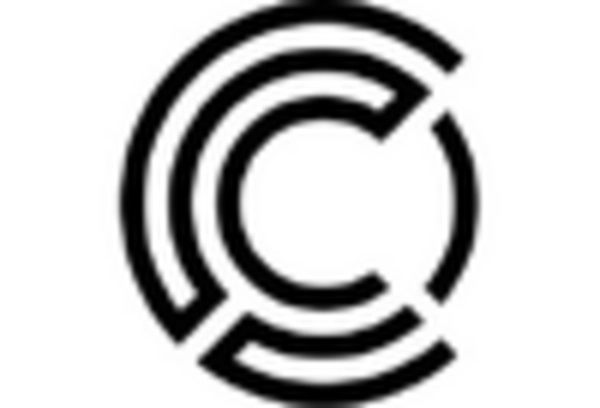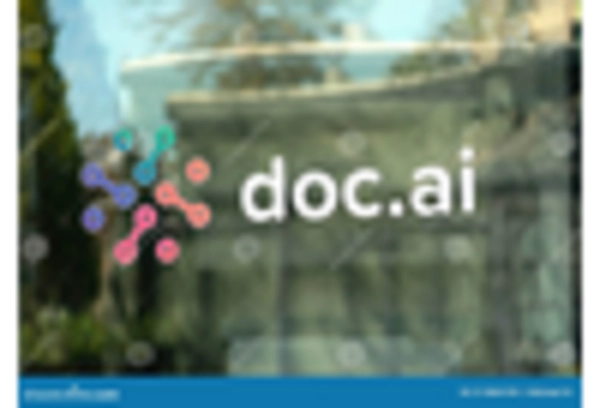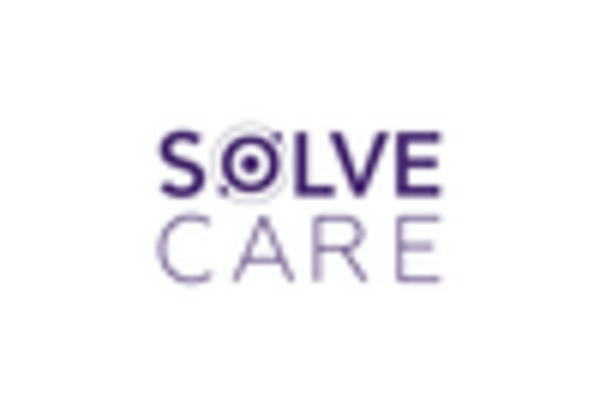Regulatory Compliance
Regulatory compliance is a critical factor influencing the Smart Contracts in Healthcare Market. With the increasing complexity of healthcare regulations, organizations are under pressure to ensure adherence to various standards. Smart contracts can automate compliance processes, ensuring that all transactions meet regulatory requirements without manual intervention. This automation reduces the risk of human error and enhances accountability. Furthermore, as regulatory bodies continue to evolve their frameworks, the adaptability of smart contracts allows healthcare organizations to remain compliant with minimal disruption. The potential for smart contracts to streamline compliance processes positions them as a valuable asset in navigating the intricate regulatory landscape of healthcare.
Enhanced Interoperability
The Smart Contracts in Healthcare Market is increasingly driven by the need for enhanced interoperability among various healthcare systems. As healthcare providers and organizations adopt diverse technologies, the ability to seamlessly exchange data becomes paramount. Smart contracts facilitate this by automating data sharing and ensuring that all parties adhere to predefined protocols. This interoperability not only improves patient care but also reduces administrative burdens. According to recent estimates, the interoperability market is projected to grow significantly, indicating a rising demand for solutions that can integrate disparate systems. As a result, smart contracts are positioned to play a crucial role in bridging gaps between healthcare entities, thereby enhancing overall operational efficiency.
Patient-Centric Solutions
The shift towards patient-centric solutions is a significant driver in the Smart Contracts in Healthcare Market. As healthcare evolves, there is a growing emphasis on personalized care and patient engagement. Smart contracts facilitate this shift by enabling patients to have greater control over their health data and treatment options. By automating consent processes and ensuring secure data sharing, smart contracts empower patients to make informed decisions about their care. This trend aligns with the broader movement towards value-based care, where patient outcomes are prioritized. The increasing focus on patient-centric solutions indicates that smart contracts will play a crucial role in shaping the future of healthcare delivery.
Cost Reduction and Efficiency
Cost reduction remains a pivotal driver in the Smart Contracts in Healthcare Market. By automating processes such as claims processing and patient billing, smart contracts can significantly minimize administrative costs. The healthcare sector has been grappling with rising operational expenses, and the implementation of smart contracts offers a potential solution. Studies suggest that organizations utilizing smart contracts can reduce transaction costs by up to 30%. This efficiency not only benefits healthcare providers but also enhances the patient experience by expediting service delivery. As the industry continues to seek ways to optimize resources, the adoption of smart contracts is likely to gain momentum, further solidifying their role in the healthcare landscape.
Data Integrity and Transparency
Data integrity and transparency are essential components driving the Smart Contracts in Healthcare Market. The healthcare sector relies heavily on accurate data for decision-making and patient care. Smart contracts enhance data integrity by providing a tamper-proof mechanism for recording transactions. This transparency fosters trust among stakeholders, including patients, providers, and insurers. As the demand for accountability in healthcare increases, the role of smart contracts in ensuring data accuracy becomes increasingly vital. Reports indicate that organizations implementing smart contracts experience a marked improvement in data reliability, which is crucial for effective patient management and operational success. This trend suggests a growing recognition of the importance of data integrity in healthcare.
